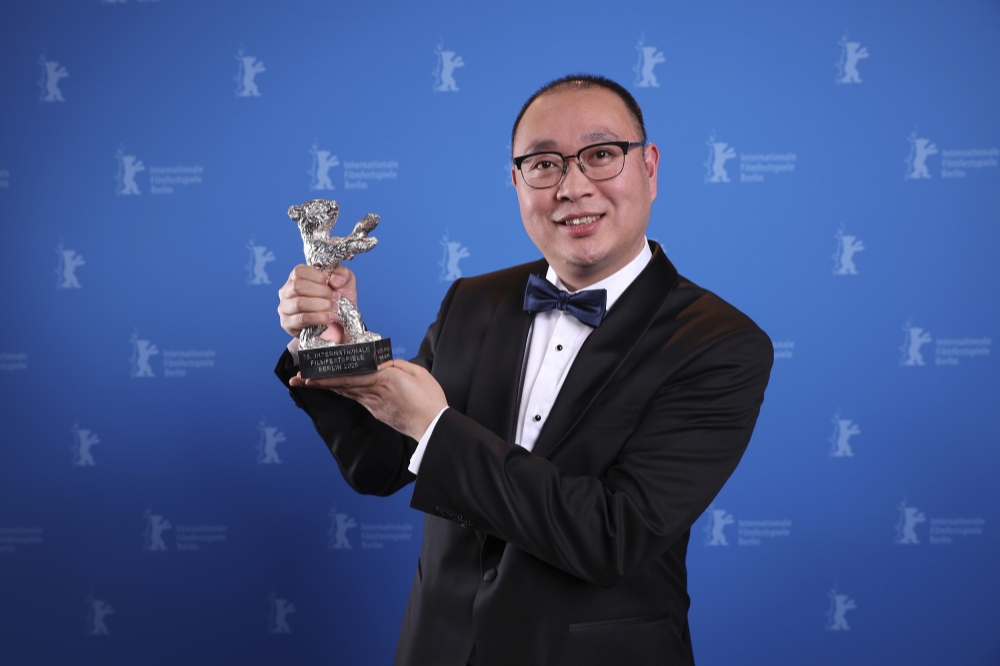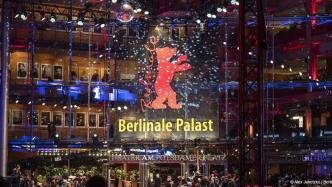
On the evening of February 16 local time, the 73rd Berlin International Film Festival opened as scheduled. American actor Kristen Stewart, chairman of the main competition jury, together with Romanian director Radu Jude, German director Valeska Gritzerbach, and Iranian-French actor Gershfi Farahani , American casting director Francine Messler, Spanish director Carla Simon and Hong Kong director Johnnie To appeared on the jury. Starring Anne Hathaway of the opening film "She Came to Me", German actress Emilia Schuler, and supermodel Tony Gahn were also the focus of the spotlight. In addition, the young Chinese director Wu Lang and the leading actors Renke and Li Meng of his shortlisted work "Snow Cloud" also appeared on the opening red carpet as guests.
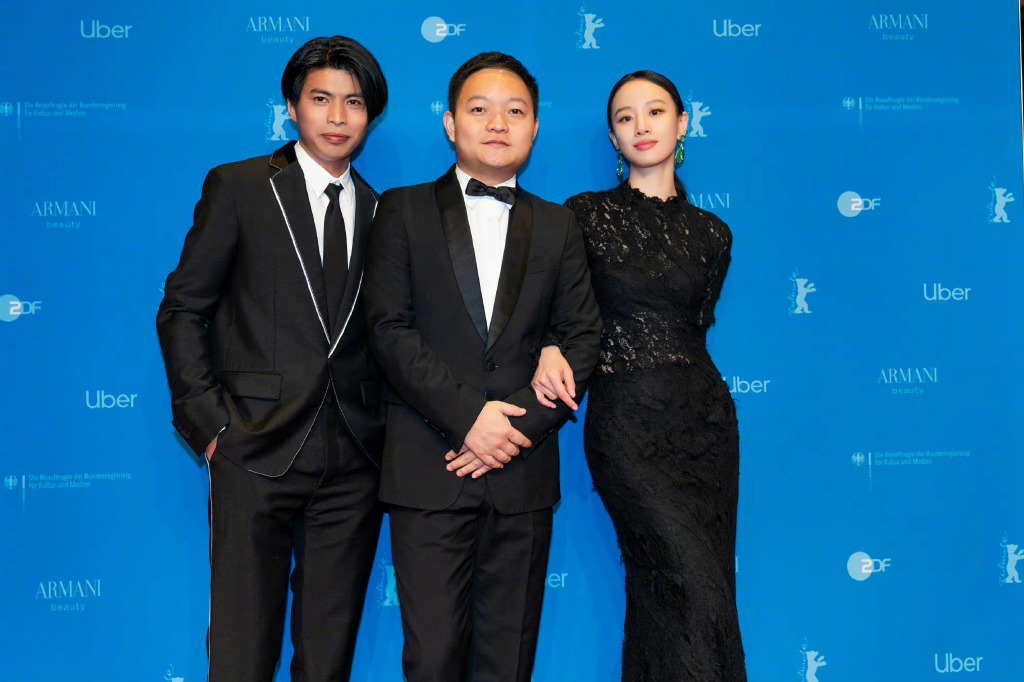
"Snow Cloud" director Wu Lang (middle), and actors Li Meng (right) and Renke (left) appear on the red carpet at the opening of the Berlin Film Festival
Zelensky was the guest of honor at the opening ceremony
A total of 19 films were shortlisted for this year's main competition. Looking at the film list alone, there is no obvious winner. At least half of these films deal with political issues thematically, which is in line with the Berlinale's usual preference. Compared with Cannes and Venice among the three major film festivals in Europe, on the one hand, the Berlin Film Festival has little to do with the Oscars season due to the timing of the festival, and Berlin has never been interested in works that aim to hit the statuette. But on the other hand, the Berlin Film Festival, which has become more and more political in recent years, is ideologically the one among the "Big Three" that follows Hollywood most closely. Whether it is the previous anti-sexual assault movement or the current concern about Ukraine and Iran, the Berlin Film Festival is far ahead of Cannes and Venice.
At this year's Berlin Film Festival, there were as many as six documentaries and feature films about Ukraine, including the character documentary "Superpower" (Superpower) filmed by well-known American actor Sean Penn for Ukrainian President Zelensky. The film will premiere on February 17 local time as planned. It is said that Zelensky's wife may parachute to Berlin to attend the premiere in person.
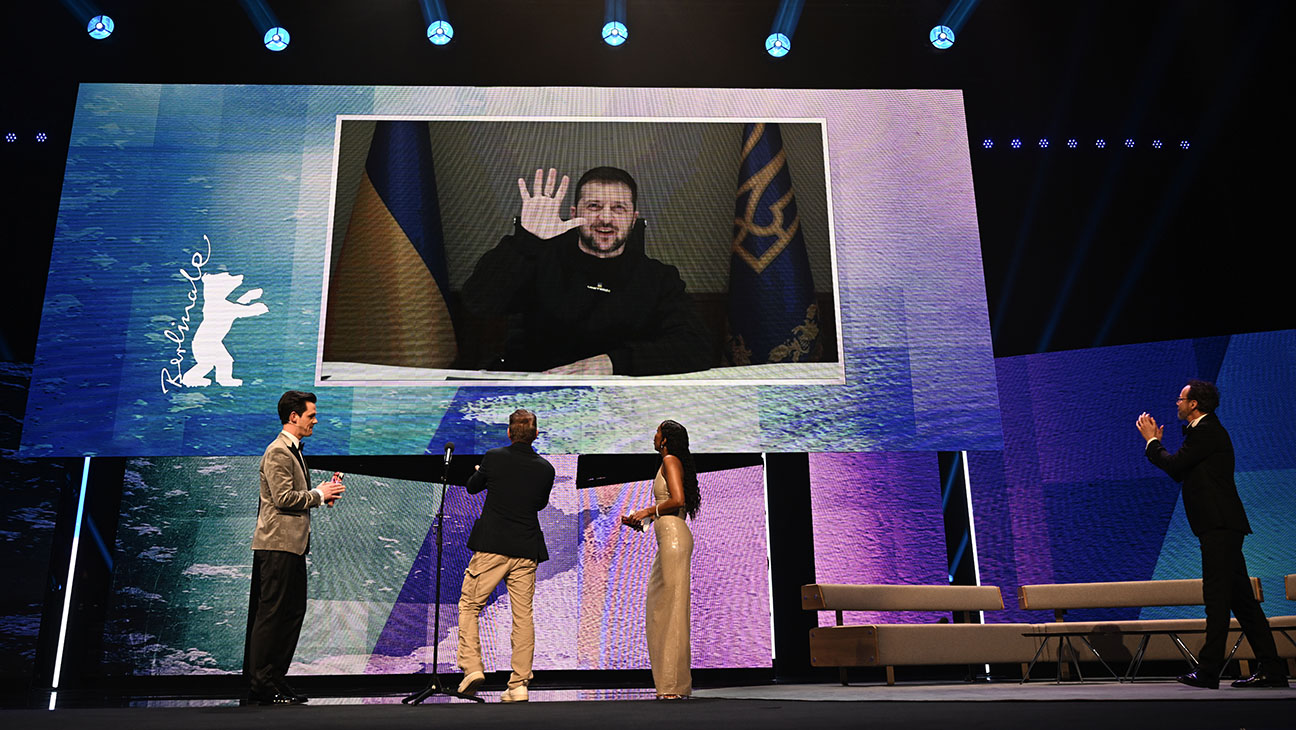
Ukrainian President Volodymyr Zelensky appeared at the opening ceremony of the Berlin Film Festival via video link
At the opening ceremony of the Berlin Film Festival, Sean Penn was also the first heavy guest to appear. He talked freely about the origin of the filming, and then invited the protagonist of the documentary. The Ukrainian president appeared on the big screen via video link, reminding filmmakers once again that there is no so-called art independent of politics in the world. He solemnly appealed that filmmakers also need to face the reality, put their stances right, and choose sides. similar expressions.
According to the Berlin Film Festival, the reason why the Ukrainian president was invited to be the guest of honor for this year's opening ceremony is itself a manifestation of a position. As a result, at the opening ceremony, including the German Minister of Culture Claudia Ross, many members of the German cabinet came at once. The Deputy Prime Minister (Robert Habeck) and the Minister of Agriculture ( Jem Ozdemir), the Minister of Family (Lisa Bowes) and others all attended the scene, making it hard to tell whether this is a film festival or a political event. At the red carpet ceremony before the opening ceremony, there were also members of an environmental protection group called "We Are the Last Generation" who raided the scene and fixed themselves on the red carpet with their usual strong glue hands.
This year's Berlin Film Festival also has strong American elements. In addition to the American actress Stewart serving as the chairman of the jury for the main competition unit, this year's Lifetime Achievement Award will also be awarded to American director Steven Spielberg. The opening film is also the American film "She Came to Me". According to reports, Carlo Shatterian, one of the directors of the current Berlin Film Festival, made a special trip to Los Angeles in the second half of last year, hoping to re-establish a relationship with Hollywood after the epidemic.
The impact of the epidemic has not dissipated
In the three years since the epidemic, the German film industry has also been hit hard, and seeing that other industries are quickly recovering, the number of audiences in Berlin cinemas still cannot increase. Therefore, at the jury meeting before the opening ceremony, many reporters asked the question of the future of the film. Chairman Stewart, Johnnie To, Golshaffey Farahani and other judges all emphasized the importance of the film again, like "the oxygen in life is indispensable".
However, when Stewart answered reporters' questions, he reiterated the argument that "movies are not dead, movies are eternal", which seems somewhat mechanical and repetitive. In her opinion, the sharp decline in the number of movie audiences around the world in recent years is mainly due to the epidemic, so people have the illusion that "the film industry is collapsing in an all-round way", but as early as 2010, she attended the She at the Berlin Film Festival firmly believes that as long as human beings exist, movies will not die.
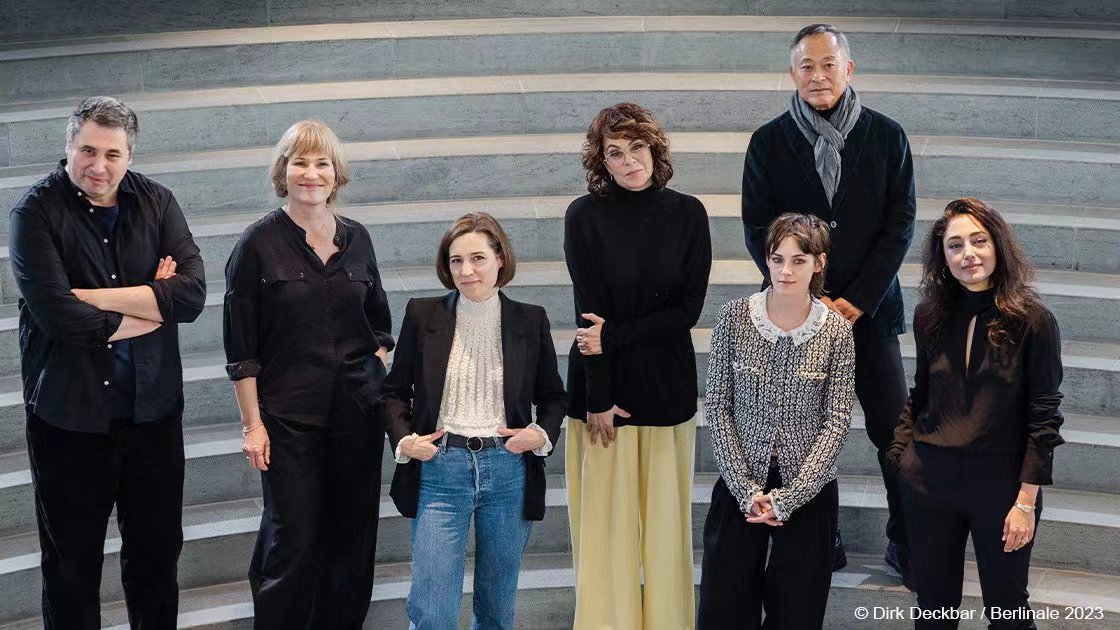
Jury of the main competition unit of the 73rd Berlin Film Festival
In contrast, Johnny To, the second filmmaker from Hong Kong after Maggie Cheung to achieve the "Grand Slam" of the three major film festivals, boldly stated that compared with the movies he saw when he was young, the quality of today's movies is probably inferior. Can't compare. In other words, the film is regressing. As for the cause of the regress, the reporter did not ask further questions, and Director Du did not make it clear.
Strictly speaking, this year's Berlin is considered to be the first time that Germany has fully returned to normal after saying goodbye to the epidemic situation. Although it is no longer necessary to wear masks, administer vaccines, nucleic acid tests, and maintain social distance as during the epidemic, some of the rule changes set at that time will actually continue this year.
Among them, the biggest complaint from the media is that the traditional physical ticket system has been completely replaced by online ticket sales. Whether ordinary audiences buy tickets or media reporters exchange tickets with vouchers, it needs to be done online. According to the official spokesperson, this is progress. People no longer need to queue up early in the morning to grab tickets before dawn in freezing Berlin. However, there are also many reporters with "old habits die hard" He said that he would rather go back to queuing up like before, and don't want to face the problem of online ticket grabbing like this.
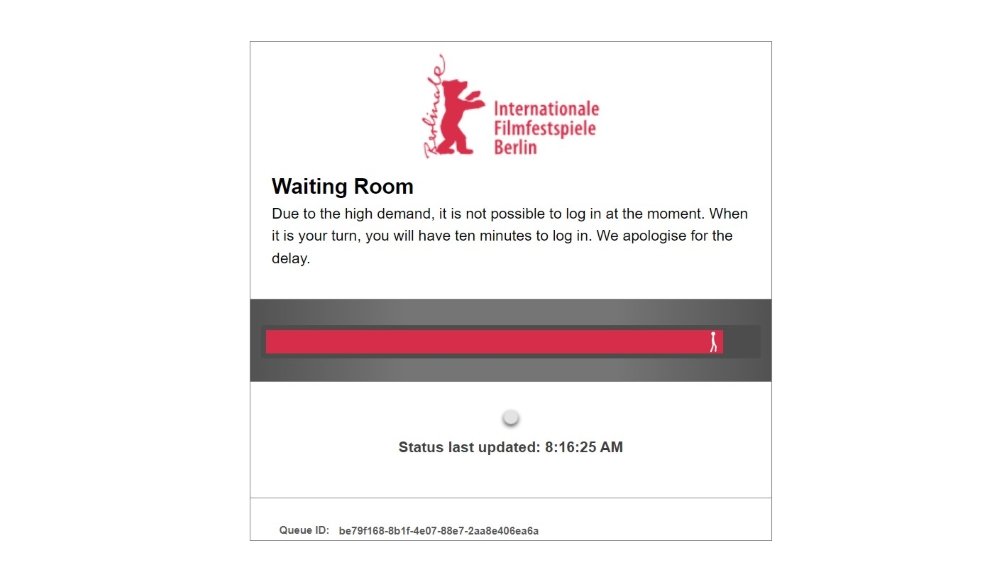
Error message in the online ticketing system
On the other hand, in Europe in the post-epidemic era, the economy and people's livelihood have encountered considerable challenges due to the superposition of multiple factors. Britain and France have staged large-scale serial strikes, and Germany obviously cannot be immune to it. On the opening day of the Berlin Film Festival, the local Brandenburg International Airport announced that a large number of domestic flights would be canceled over the weekend due to a general strike by airport workers across the country. It is still unknown what impact it will have on the film festival. But it is obvious that art may not be independent of real politics.
The historical baggage of film festivals
In fact, the history of the Berlin Film Festival itself is also inseparable from political issues. In January 2020, the German magazine Die Zeit revealed that Alfred Bauer, the first director of the Berlin Film Festival, was himself a Nazi, which put a heavy burden on the film festival. historical baggage.
Bauer, born in 1911, is the actual founder of the Berlin Film Festival and a famous film historian in post-war Germany. He served as the chairman of the first Berlin Film Festival in 1951 until his retirement in 1976. The hard work and blue thread have made the first-class contribution to the development and growth of this film festival. For a long time, he has been regarded as the spiritual symbol of the Berlin Film Festival, symbolizing its core values of openness, tolerance and fraternity. In 1986, Bauer died of illness. In the following year, the Berlin Film Festival established the Alfred Bauer Silver Bear Award in memory of him. New Perspectives". Historically, in addition to Zhang Yimou's "Hero", Baz Luhmann's "Romeo and Juliet Post-Modern Passionate Edition", Guan Jinpeng's "The Happier the More Depraved", Cai Mingliang's "A Cloud in the Sky", etc. has received this honor.
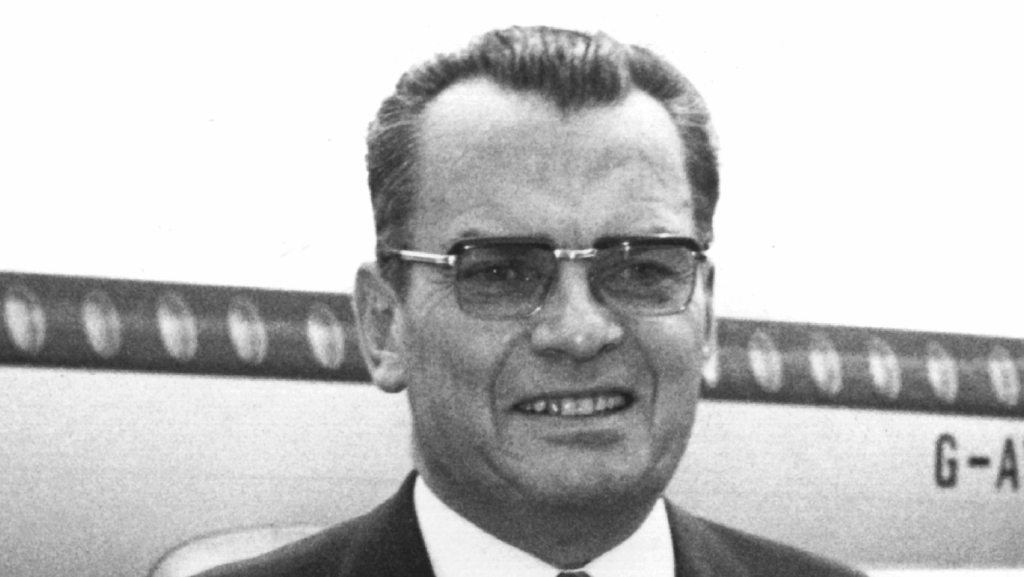
"Father of the Berlin Film Festival" Alfred Bauer
Three years ago, Die Zeit published an article revealing that Alfred Bauer, the "Father of the Berlin Film Festival", was a Nazi and deliberately concealed his dark history after the war! Looking back at history, Bauer graduated with a doctorate at the age of 27 in 1938, and then served in the army for three years. In 1942, he joined the German Ufa Film Company, and then became a consultant for the Film Bureau under the German Propaganda Ministry until the end of World War II in 1945. . After the war, he became a consultant to the British Film Bureau, and took advantage of his work in the German film industry during the war to publish a lot of film history books, which provided a lot of first-hand information for later generations to understand Nazi German film policy. Extraordinarily respected.
In 1950, the situation of the Cold War was basically determined. Oscar Martay, head of the Film Office of the U.S. Army's Information Department in Berlin, proposed that the United States fund the Berlin International Film Festival to strengthen its soft power of ideological penetration. Soon, Alfred Bauer was chosen by him, and he was solely responsible for the founding of the Berlin Film Festival. But in fact, as early as at that time, some people in the German cultural circles pointed out that Bauer was closely related to the Nazi government and was not suitable for this position. Consultants, there is no problem with their own conduct.
In 1973, the 30-year-old German film historian Wolfgang Becker found through investigation that Bauer was a key figure in the Nazi Film Bureau, not just an ordinary consultant. Since then, in 1993, 1998 and 2008, three film scholars successively revealed Ball's true identity, but due to various reasons, all these allegations failed to cause any waves and were quickly subsided.
Three years ago, Die Zeit once again raised this thorny question by combing through a large amount of historical materials from the German State Archives and the Berlin City Archives. The most weighty piece of material they gave was the internal investigation report on Bauer made by the Nazi German Propaganda Department under Goebbels. Before recruiting him to serve at the Film Bureau, Goebbels needed to know whether Bauer was politically reliable, so he asked Bauer's South Würzburg Nazi Regional Party to investigate him. Their conclusion: Bauer was an enthusiastic member of the SA, loyal to the Nazis.
In addition, "Die Zeit" also investigated and found that during his three-year service at the Film Bureau, Ball was by no means an ordinary consultant, but a senior member of it. At that time, German directors and actors, who were qualified to film and who had to serve in the front line according to the regulations, Bauer had a considerable say. But after the war, he managed to disassociate himself from all ties, even going to great lengths to project a glorious image of himself as a shadowy fighter against the Nazis.
The report of "Zeit Die Zeit" undoubtedly cast a shock bomb in the German and even the entire European film circle. Agnieszka Holland, the Polish director and current president of the European Film Academy who was informed of the news, had a particularly strong reaction. Bauer Silver Bear Award, and her Polish predecessor, director Andrzej Wajda, also won this award in 2009 for "Sweet Impulse". "It's pretty ironic," Holland says. "To think about it, me and my late friend and mentor Andrzej Wajda — who was part of the Polish resistance underground during World War II — To have an award named after Bauer in Berlin feels like...but what we're really asking now is: how many secrets do you have left?"
In the face of negative news, the Berlin Film Festival also reacted quite quickly. They immediately announced the suspension of the Alfred Bauer Silver Bear Award. Subsequently, the organizing committee commissioned the Institute of Modern History in Munich to conduct a comprehensive investigation of the incident. Founded in 1949, the Institute of Modern History is an authority in the field of Nazi history research. In September 2020, this Bauer investigation report was initially released, and Bauer did deliberately conceal his dark history. Subsequently, the Berlin Film Festival commissioned the agency to continue the investigation, hoping to give a final opinion, that is, whether Bauer's Nazi identity had a substantial impact on the establishment of the Berlin Film Festival that year.
In November last year, the second report was released, which clearly pointed out that although Bauer stated in public that film, as an artistic medium, is not political, he has always emphasized in private that it is necessary to give the Berlin Film Festival a greater value beyond the cultural scope. It is necessary to use it to demonstrate the superiority of the Western system, and to make the Berlin Film Festival a "demonstration of the free world." However, the report also pointed out that the Berlin Film Festival has not been ideologically affected by the legacy of the Nazis. In other words, even if there is a problem with Bauer's history, there is nothing wrong with the Berlin Film Festival.
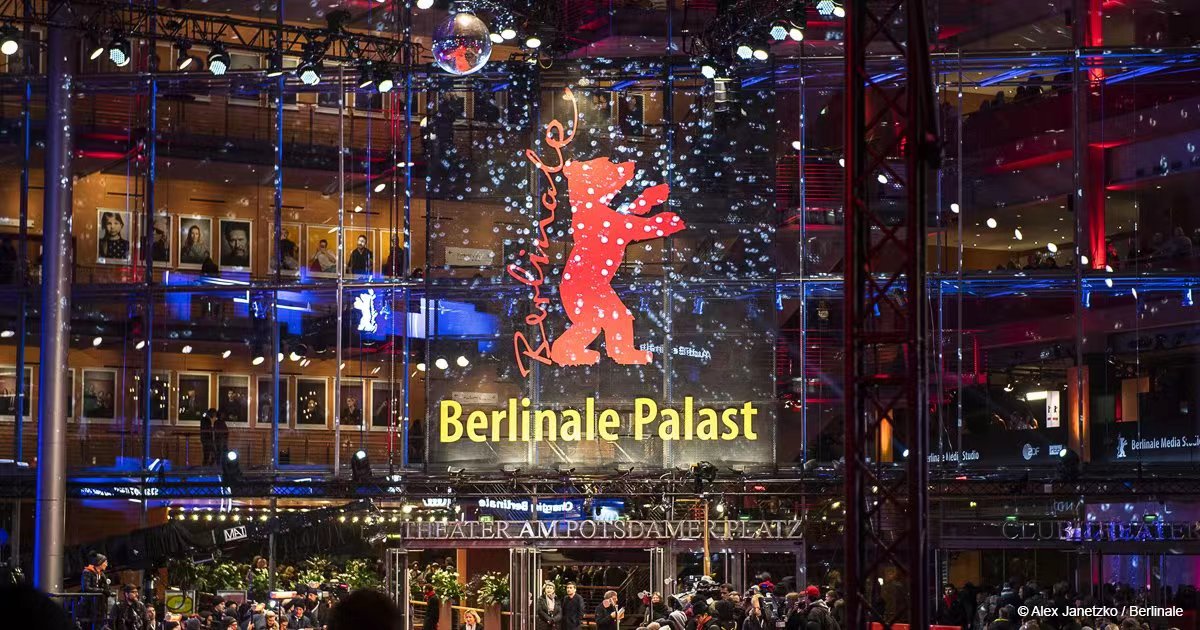
Exterior of the opening ceremony of the Berlin Film Festival
"Academy of Arts" luxury voice actor lineup announced, "Worthy Trip" debut Hu Ge and Wu Lei in the same frame stills
Of course, it is not only the European film industry that has been affected by the epidemic. In the three years since the epidemic, Chinese filmmakers have had very few opportunities to appear in the international film world. It is gratifying that Chinese filmmakers can be seen in all units of this year's Berlin Film Festival, which seems to herald a return. In the main competition unit alone, two Chinese films were shortlisted, namely "The Light of the White Tower" directed by Zhang Lu and starring Xin Baiqing, Huang Yao, and Tian Zhuangzhuang, and the animated film "Art Academy" directed by Liu Jian. The two works will hold their world premieres on February 18 and February 24, respectively, local time.
Among them, "Art Academy" was confirmed as a finalist a week after the organizer announced the first batch of film lists. The film tells a youthful anecdote that happened at Southern University of the Arts in the early 1990s; it focuses on the romantic and cruel youth years, and in the era of reform and opening up, a group of young people who are at the crossroads of growth have questions about the essence of life, artistic ideals, The thinking and choice of friendship and love. Director Liu Jian said: "This is not a nostalgic movie, it just wants to share the beauty of life and the beauty of art with every young life, and every person who is old on the outside but still young on the inside."
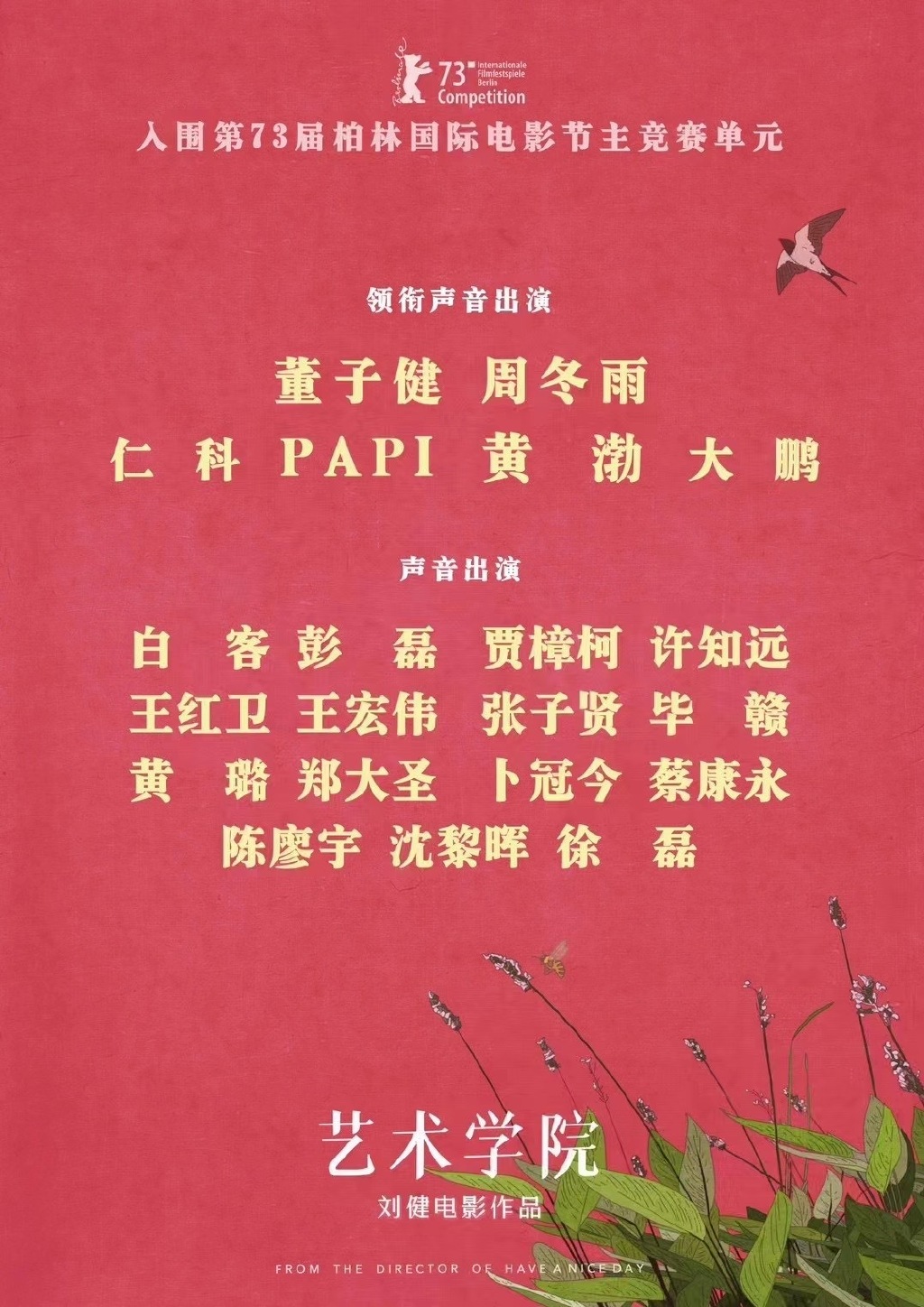
The voice actors of "Academy of Arts" revealed
With the opening of the Berlin Film Festival, the voice actor lineup of "Art Academy" was also announced. Including Dong Zijian, Zhou Dongyu, Jiang Yilei (Papi Jiang), Huang Bo, PeopleSoft, Dapeng, Baike, Peng Lei, Jia Zhangke, Xu Zhiyuan, Wang Hongwei, Wang Hongwei, Zhang Zixian, Bi Gan, Zheng Dasheng, Bu Guanjin, Huang Lu, Cai Kangyong, Chen Liaoyu , Xu Lei, Shen Lihui, etc., all give life to the characters with their own voices. As for whether any of them will appear at the premiere with director Liu Jian, it is still unknown. After the trip to Berlin, the film is expected to be released within this year and meet domestic audiences on the big screen.
The 73rd Berlin International Film Festival will be held from February 16th to February 26th. After two years of online contact, the European film market, a feature of the Berlin Film Festival, has returned to offline, and many Chinese film companies regard it as the first stop to promote new films to the international stage this year. For example, Rediance, an international sales and production company based in Beijing, has brought the film "Worth the Trip" to the European film market. The film is supervised by Cao Baoping, written and directed by Liu Jiayin, starring Hu Ge, Wu Lei, Qi Xi, Bai Ke, Huang Lei and others. According to the report on the first day of the Berlin Film Festival magazine "Screen Daily", "Worth the Trip" is still in post-production, and this is the first time that Hu Ge and Wu Lei are in the same frame. exposure.

The stills of "A Worthy Trip", the stills of Hu Ge and Wu Lei in the same frame are exposed for the first time

